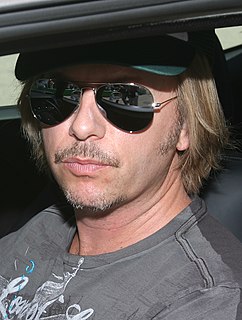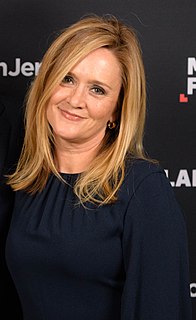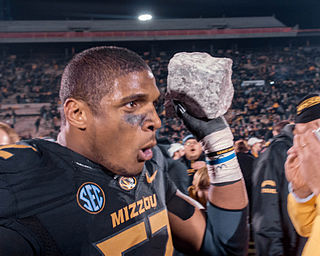A Quote by David Spade
When I'm interviewed on Leno, just be funny, period. That's all they want from me. I don't want to tell my life story.
Related Quotes
So often with beginning writers, the story that they want to start with is the most important story of their life - my molestation, my this, my horrible drug addiction - they want to tell that most important story, and they don't have the skills to tell it yet, so it ends up becoming a comedy. A powerful story told poorly becomes funny, it just makes people laugh behind their hands.
Hopefully the person I'm trying to create is just a funny, dour, evil side of myself that has no other way to express itself. I don't model it after anyone in particular. Who would be like that? Who? I wouldn't want to meet that person. I wouldn't want to be interviewed by that person, I can tell you that.
I just hate the whole idea of labeling anything as a comedy. If you tell me something's funny, I'll want to rebel against it. When I go to a bookstore and see books categorized as humor, I get furious. Don't tell me that a book is funny. Let me decide if it's funny. It's the same with sitcoms. You call something a sitcom and people expect it to be funny. And that ruins everything.
I am very excited to work with people who have a strong vision of what they want. They're trying to tell a story, and they want to use me. I'm there to facilitate that. I really like that. I'm like, "Tell me where your frame is. Tell me what you want, what kind of story you want, and I will facilitate it." That's sort of my job, and it makes my work better when I'm working in that kind of a frame, and hopefully it's their work. It's incredibly collaborative, in the sense that you're working toward a common goal.
The Danger of a Single Story”, which has resonated with me immensely every time I read it. “Power is the ability not just to tell the story of another person, but to make it the definitive story of that person. The Palestinian poet Mourid Barghouti writes that if you want to dispossess a people, the simplest way to do it is to tell their story, and to start with, “secondly.
Memoirists, unlike fiction writers, do not really want to 'tell a story.' They want to tell it all - the all of personal experience, of consciousness itself. That includes a story, but also the whole expanding universe of sensation and thought ... Memoirists wish to tell their mind. Not their story.




































